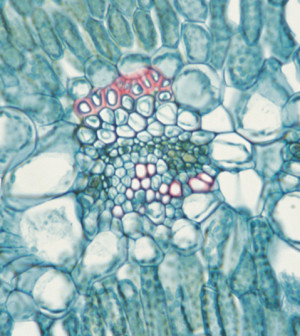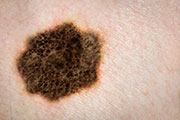- 7 Best Breads for Maintaining Stable Blood Sugar
- Gelatin vs. Collagen: Which is Best for Skin, Nails, and Joints?
- The Long-Term Effects of Daily Turmeric Supplements on Liver Health
- Could Your Grocery Store Meat Be Causing Recurring UTIs?
- Are You Making This Expensive Thermostat Error This Winter?
- Recognizing the Signs of Hypothyroidism
- 10 Strategies to Overcome Insomnia
- Could Artificial Sweeteners Be Aging the Brain Faster?
- Techniques for Soothing Your Nervous System
- Does the Water in Your House Smell Funny? Here’s Why
Deadly Skin Cancer More Common in Organ Transplant Recipients: Study


People who’ve received organ transplants may face an increased risk for the deadly skin cancer melanoma, a new study suggests.
The researchers said the increased risk may stem from the immune system-suppressing drugs that must be taken to prevent rejection of the new organs.
The analysis of data from hundreds of thousands of transplant recipients and melanoma patients in the United States showed that transplant recipients were twice as likely to develop melanoma and three times more likely to die of the disease than people who had not undergone a transplant.
The researchers also found that transplant recipients were four times more likely to be diagnosed with melanomas that had already spread to other parts of the body.
“We knew that melanoma was more likely in transplant recipients, but we thought it might be a function of intensive screening since they are very likely to develop less deadly forms of skin cancer and are checked regularly by dermatologists,” study leader Hilary Robbins, a Ph.D. student in the department of epidemiology at Johns Hopkins Bloomberg School of Public Health in Baltimore, said in a university news release.
“To the contrary, we were surprised to see that transplant recipients were particularly at risk for developing melanomas that weren’t found until they had already spread,” she added.
In addition, the risk of aggressive melanoma was especially high within the first four years after transplant, the study found.
The findings were published recently in the Journal of Investigative Dermatology.
The findings suggest a link between organ transplants and melanoma risk; they don’t prove cause-and-effect.
Transplant candidates should undergo careful screening for skin cancers before they receive a transplant, the researchers said. It’s possible that some melanomas may be present at the time of transplant and begin to spread aggressively when patients start taking immunosuppressive drugs, Robbins noted.
Close monitoring for melanoma after a transplant is also important so that the disease can be caught at an earlier, more treatable stage, she added.
More information
The American Cancer Society has more about melanoma.
Source: HealthDay
Copyright © 2026 HealthDay. All rights reserved.










